
- Source: Luncheon Magazine
- Author: Antonia Marsh
- Date: Issue No. 10
- Format: Print
Anxiety is a feeling of unease

Shannon Cartier Lucy, Morning Prayers, 2018, Oil on canvas, 55.9 x 48.3 cm.
Courtesy of the artist, Soft Opening, London and Lubov, New York
Anxiety is a feeling of unease. A distinct sensation of fear – particularly about things that are about to happen or which could happen in the future, whether real or imagined – inundates its sufferer with minimal notice. It’s contagious, overwhelming and unpredictable. Even thinking about it can prompt that little wave, starting somewhere deep inside the belly and spreading upwards through the chest. Somehow at once intermittent and unremitting, as soon as an anxious thought is resolved, another might appear about something completely unrelated.
The works included in these pages consider or envision varied anxious states: desire, loss, anticipation, fear, preoccupation, obsession, tension, loneliness, isolation, nostalgia. Whether felt bodily or psychologically, these states seem to represent both the potential cause and effect of a brief anxious feeling or more substantial episode. This pattern reveals the cyclical nature of anxiety: cause and effect continuously loop, unbroken; or, if momentarily quietened, tend to resurface later. In Zoe Barcza’s tragicomic How Alcohol Makes Me Feel, a petrol pump pours its contents into the limb of a grinning girl as she tumbles into a cavernous darkness labelled ‘The Abyss’, while bursting into moments of fiery combustion. For Barcza, Lewis Hammond and Shannon Cartier Lucy, the figure – or in the case of Brook Hsu, the animal – becomes a conduit for mood or emotion, an allegory for a feeling that passes from artist to viewer. Hammond paints an intimate loneliness between two figures who embrace, semi-naked, on a couch in a darkened room, at once together and isolated. In Morning Prayers, a faceless female figure kneels in prayer, lurching forwards from the end of her bed, head in hands. The unsettling dichotomy of intimacy and alienation found in this painting describes a subconscious space that oscillates between rational and disordered. Hsu continues an ongoing series that visualises a dream she had about her last dog, Aesop, glimpsing his reflection in a woodland pond.
Elsewhere, considered pictorial devices arouse a suspenseful theatricality. Kayode Ojo’s photograph, wherein an unseen figure knocks one of a pair of forgotten champagne glasses over, engenders a familiar enmeshment of celebration and drama – a duality which the soft folds of Louise Giovanelli’s velvety blue-silver curtain also teasingly conceal. Balanced just so, to imagine a vision of perfect precarity, Eric N. Mack’s seductive sculptural assemblage pieces together emblems of feminine elegance with nostalgia to embody a materiality of desire, while Carlos Reyes presents sun-faded red velvet jewellery displays from a store in downtown New York as spectres of outward-facing, public desire. Comparably, via a complex process of image-making and reworking, Sara Cwynar’s lusciously luminous red rose exemplifies our insatiable appetite for, commodification of and total infatuation with digital images.
Other works seem to devour the space around them through interrogations into form and materiality. Daiga Grantina’s sculptural constructions establish a tension between material properties of organic and synthetic, hard and soft, hollow and solid. Jala Wahid’s waxen work extends and complicates these binary tactilities, and Jessi Reaves’s absurdly upholstered shelving unit perverts the boundary between form and function, imploring the viewer to reconsider their relationship to design, to the
domestic, to the familiar.
Together, this group of works offers a subtle and intuitive visual language of longing, angst and uncertainty. As individuals and collectively, human beings accumulate and attach to such negative emotions. Over the last few months, these feelings of fear and frustration have understandably become so common as to materialise relentlessly. We spend
so much time avoiding anxiety, but it is precisely in that avoidance that it lies. Unfortunately, for those of us who are less inclined towards continuous commitment, the tried-and-tested home remedies of self-care take practice – but the results can be transformative. Even sharing one’s concerns, no matter how irrational, can provide the necessary relief to move out of an anxious moment. Ultimately, various trusted (and admittedly some less reliable) sources consistently teach that sitting with this feeling of uncomfortableness, of dis-ease, instead of distracting ourselves from it or, worse still, ignoring it, can lead to respite in the form of a previously unknown sense of inner quiet and the ultimate end goal, peace of mind.
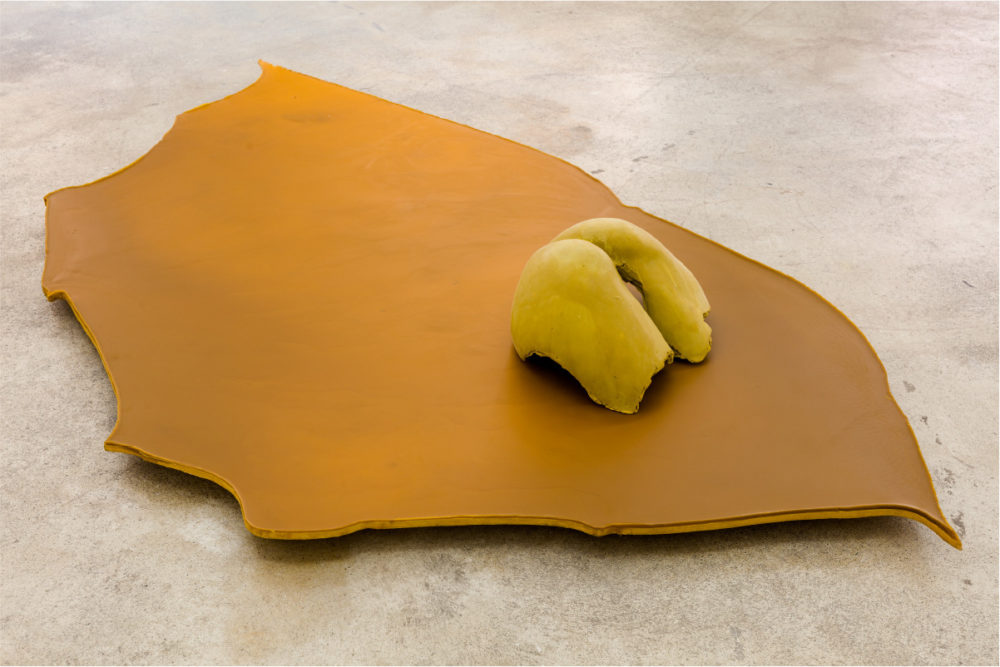
Jala Wahid, Born from and Buried in Baba Gurgur, 2018, Microcrystalline wax, beeswax and MDF, 250 x 130 x 30 cm.
Courtesy of the artist and Sophie Tappeiner, Vienna. Photography by Kunst-Dokumentation.com
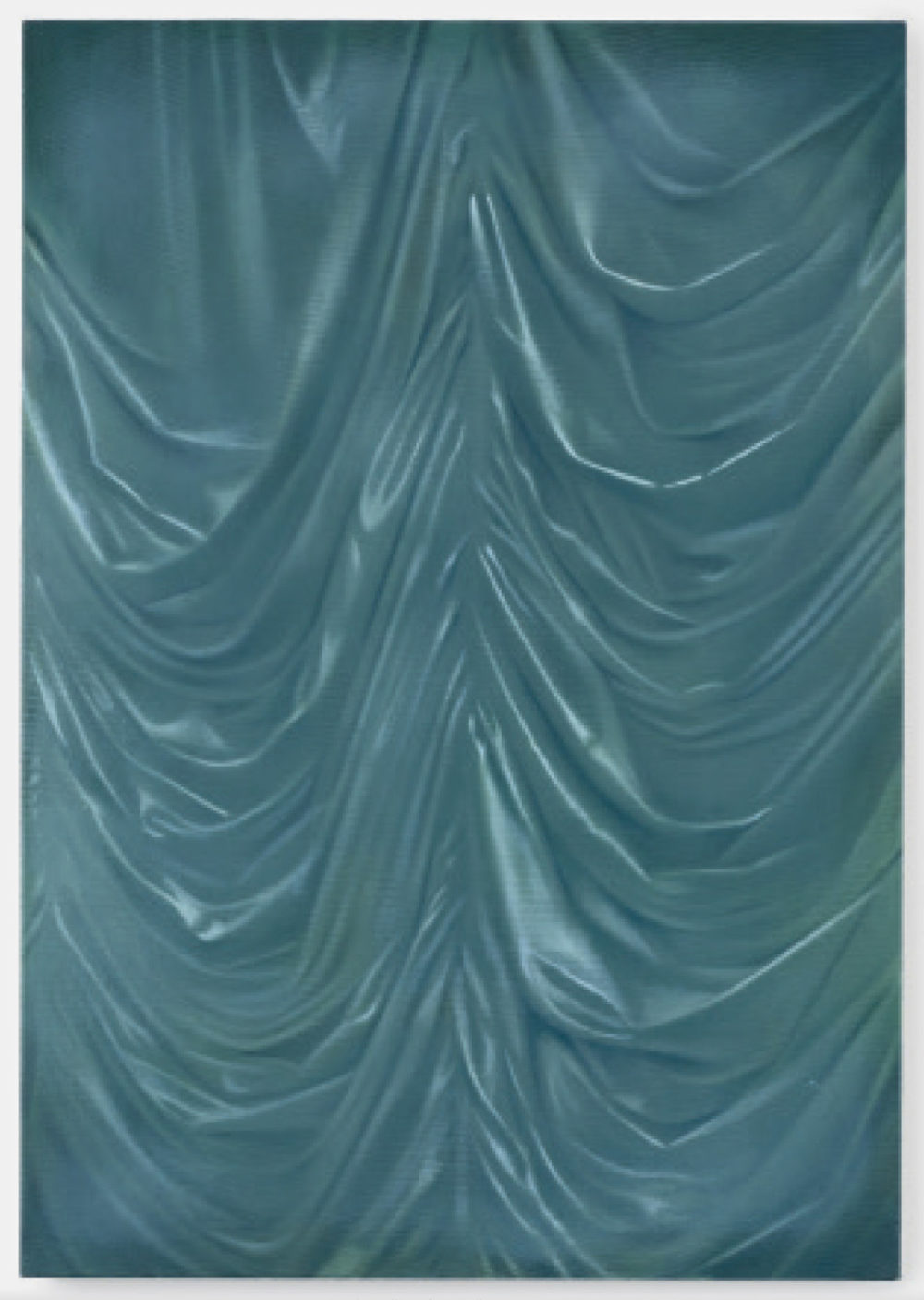
Louise Giovanelli, Pool, 2020, Oil on canvas, 100 x 70 x 4 cm.
Courtesy of the artist and GRIMM Amsterdam/ New York
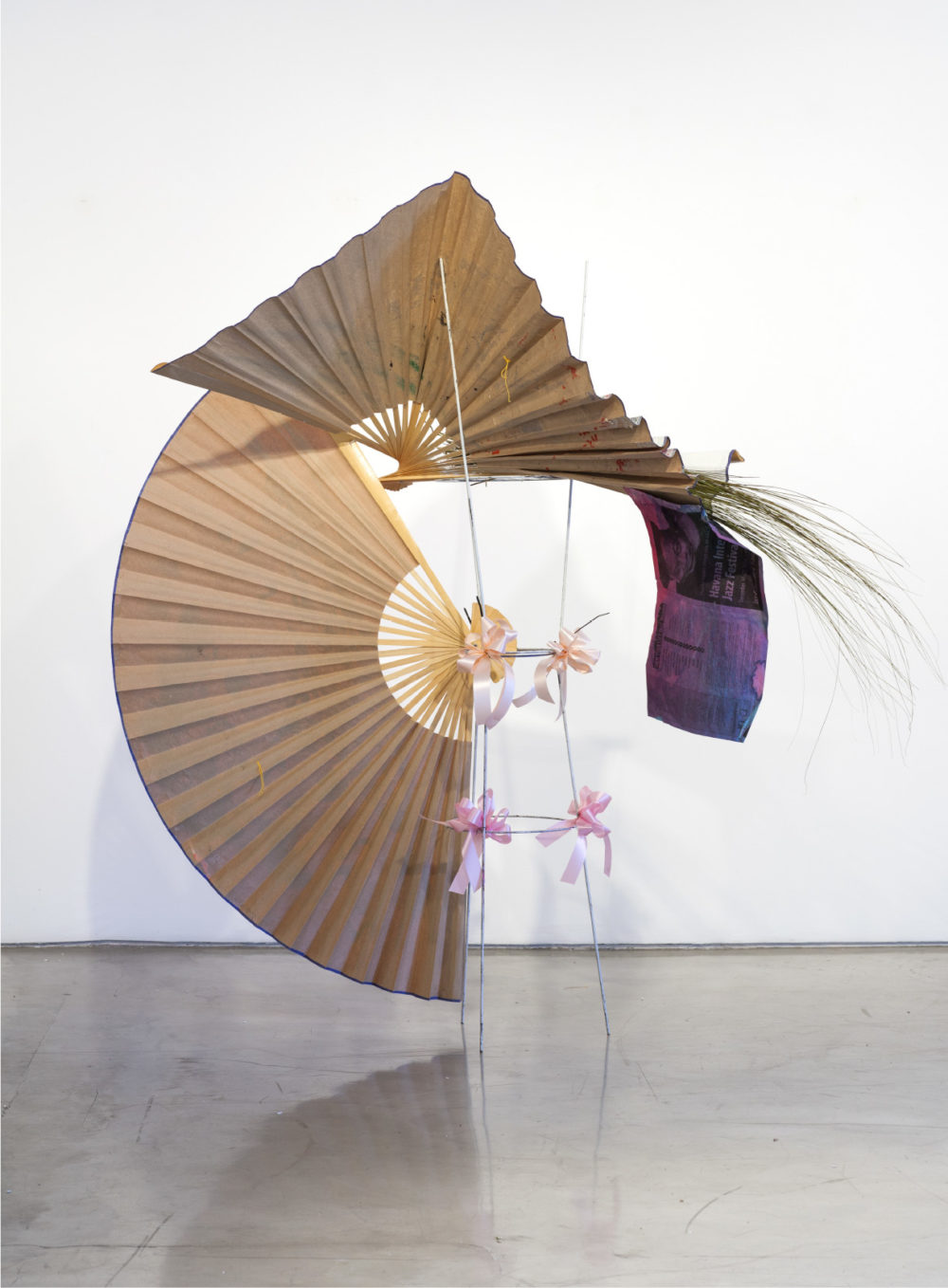
Eric N. Mack, 2 FANS, 2015, Folding fans, metal floral armature, dried decorative grass, ribbons and newspaper, 189.3 x 190.5 x 139.7 cm.
Courtesy of the artist and Morán Morán
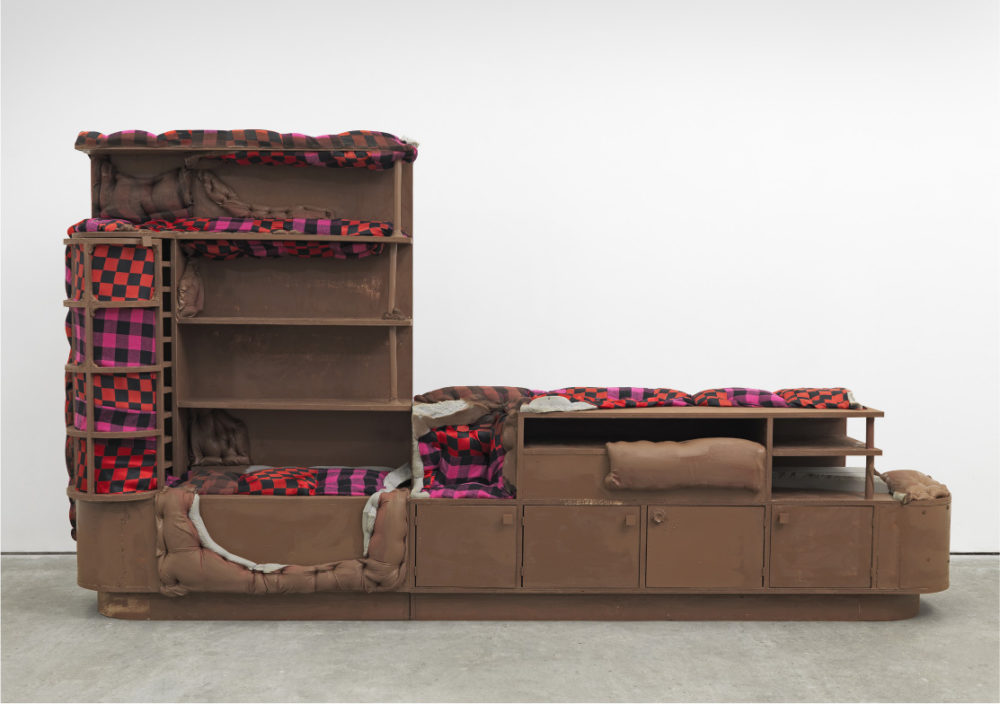
Jessi Reaves, Padded Cabinet, 2017, Plywood, foam, fabric, paint, sawdust and wood glue, 154 x 263.5 x 43 cm (overall).
Courtesy of the artist and Herald St, London. Photography by Ken Adlard
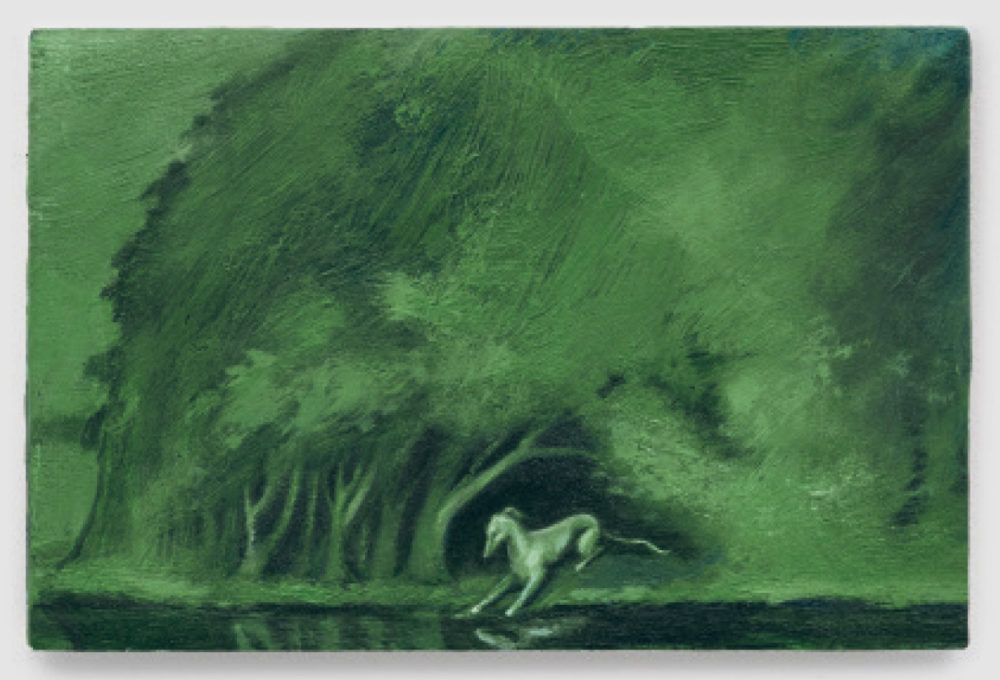
Brook Hsu, Aesop by the Pond, 2018, Oil on wood, 10.2 x 15.2 cm.
Courtesy of the artist and Bortolami, New York. Photography by John Berens
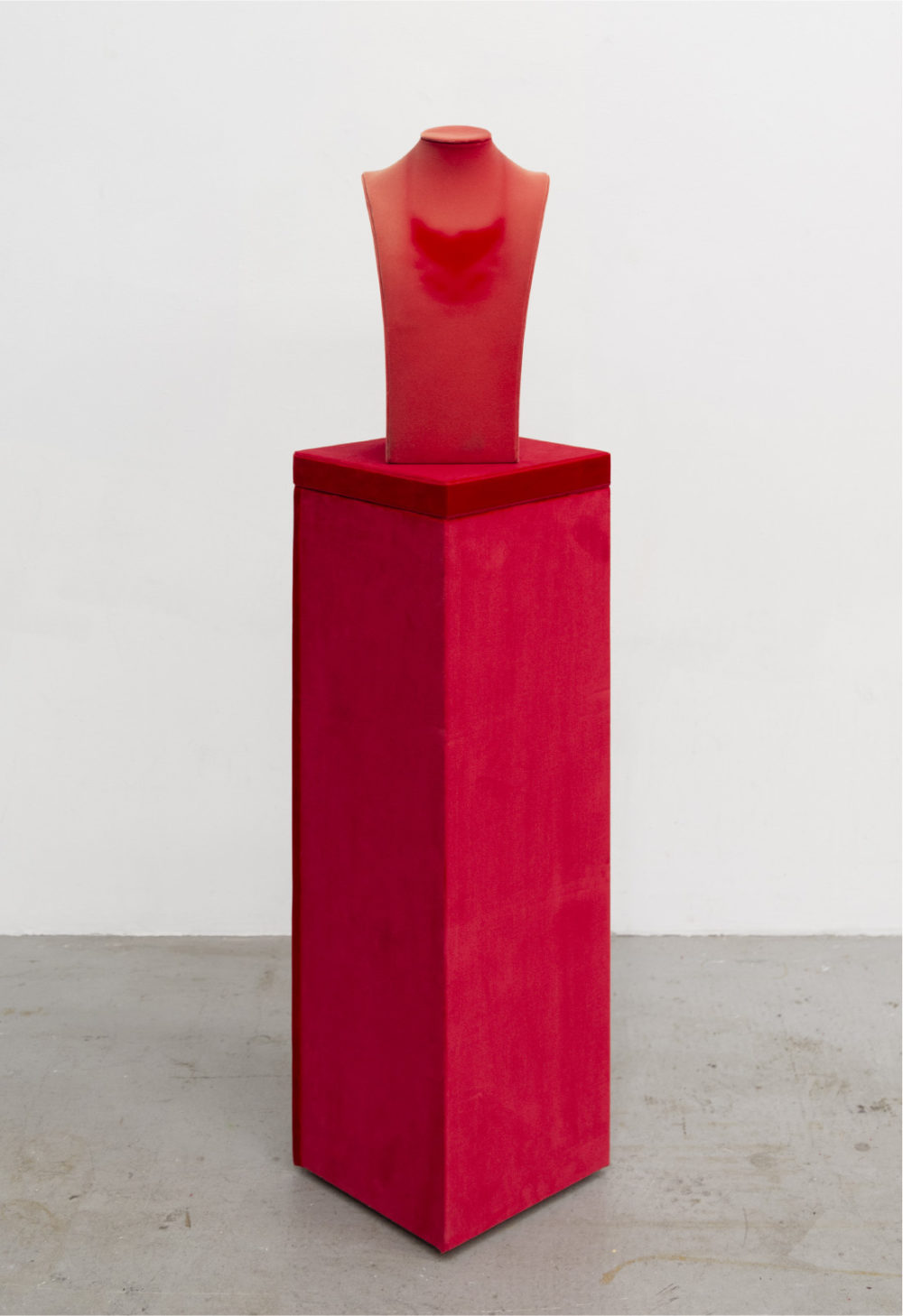
Carlos Reyes, 7129619 (2), 2018, Neck-form display (Canal Street, New York), velvet and maple, 124.5 x 26.7 x 26.7 cm.
Courtesy of the artist and Bodega, New York

Kayode Ojo, Lucien, New York, 2016, Photograph, 34.3 x 41.9 cm.
Courtesy of the artist and Sweetwater, Berlin
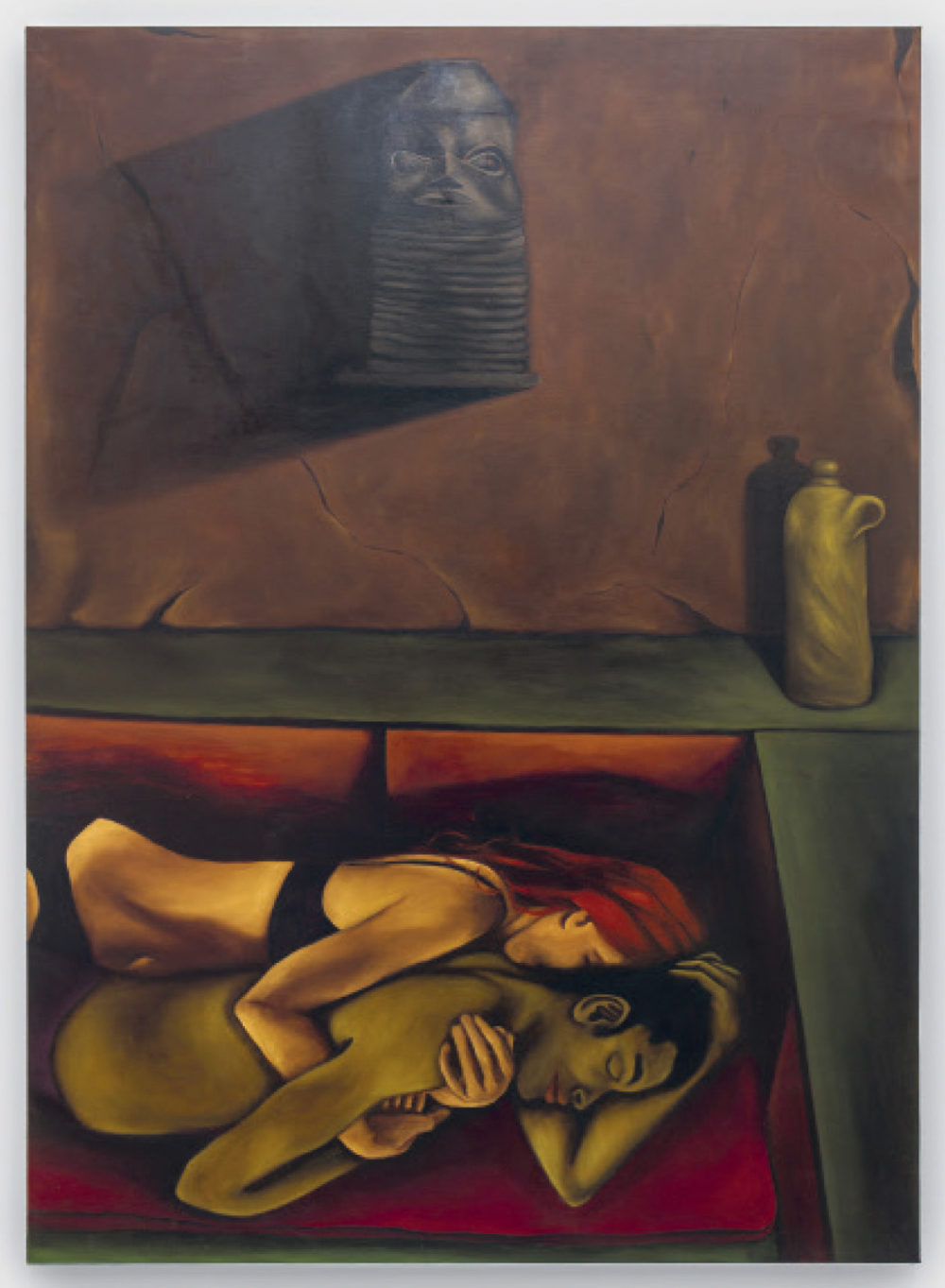
Lewis Hammond, Kyur, 2020, Oil on canvas, 180 x 130 cm.
Courtesy of the artist and Lulu, Mexico City. Photography by Ramiro Chaves

Zoe Barcza, How Alcohol Makes Me Feel, 2019, Acrylic, vinyl paint and collage on linen, 150 x 220 cm.
Courtesy of the artist and Bodega, New York
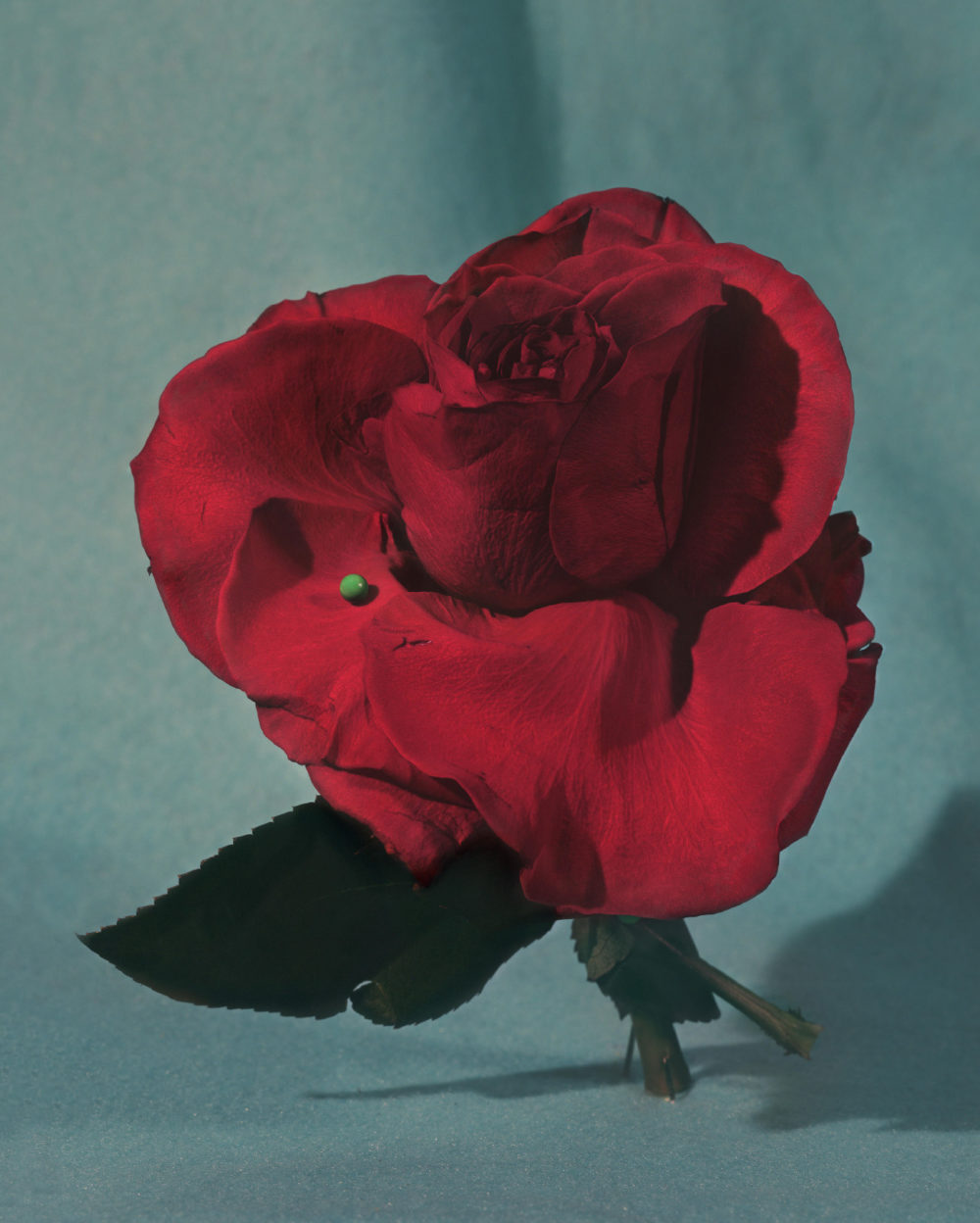
Sara Cwynar, Red Rose II, 2020, Metallic chromogenic print mounted on Dibond, 76.2 x 61 cm.
©Sara Cwynar. Courtesy of The Approach, London, Foxy Production, New York and Cooper Cole, Toronto
Antonia Marsh, founder of Soft Opening – which originated in a vitrine in Piccadilly Circus tube station before moving to a more conventional gallery space in East London – curates a selection of art in the shadow of the anxiety induced by months of lockdown.

